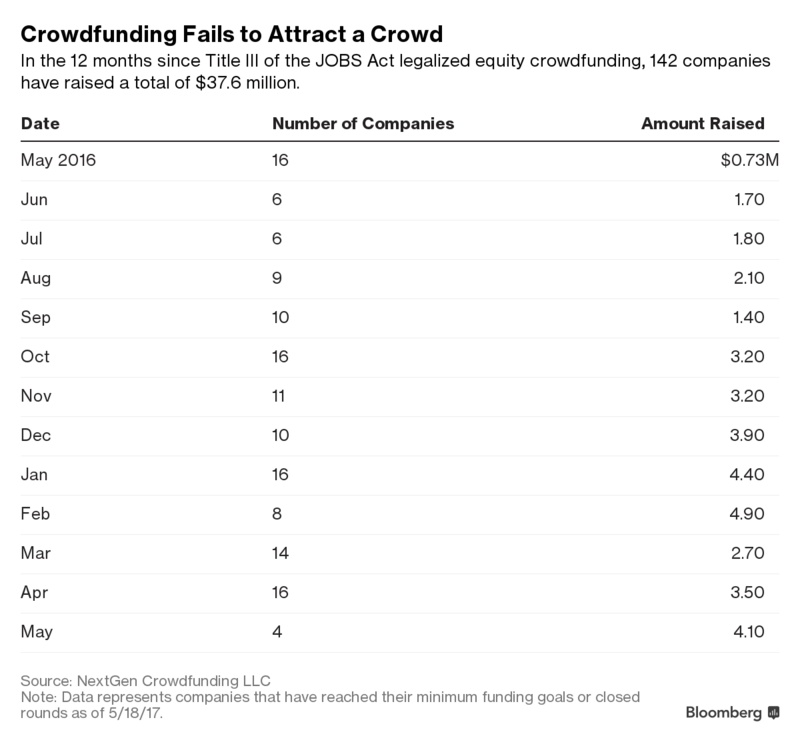US startups fail to attract expected crowd of small investors
Many founders are still not aware that equity fundraising is an option
.jpg)
It has been a year since US rules went into effect enabling anyone - not just the ultra-wealthy - to buy a slice of a startup.
Turns out, few are interested.
Investors sprinkled about $38m across 142 companies since May 2016 when Title III of the JOBS Act allowed equity crowdfunding for non-accredited investors, according to data from industry tracker NextGen Crowdfunding.

The slow start is a rounding error in the larger system - venture investors ploughed more than $69bn into startups during 2016, according to the National Venture Capital Association - and a little surprising, according to Richard Swart, a founding board member of the Crowdfunding Professional Association.
“Everyone in the industry thought there would be more uptake,” said Mr Swart, who also serves as chief strategy officer at NextGen.
“We all expected these numbers to be two to five times what these numbers were.”
Mr Swart said the practise is still in its infancy. Wefunder, StartEngine and SeedInvest are the primary crowdfunding platforms, and many founders are not aware that equity fundraising is an option. Of those who explore it, many decide it is not worth the hassle and expense.
NextGen data show companies typically spend from $20,000 to $50,000 on legal, accounting and marketing - a serious outlay for a startup that is only looking to raise a couple hundred thousand dollars.
While the JOBS Act passed in 2012, regulators did not approve the equity crowdfunding rules until 2016 when they were confident they had included enough safeguards to protect small-time investors. There may be additional tweaks to the law over the next year or so - the NVCA recently called for additional reforms - but for now the maximum a company can raise via crowdfunding is $1m.
“We are at year five in a 10-year process,” said Mr Swart, calling the first 12 months of the crowdfunding provisions a learning period.
“I’m optimistic the Congress and the SEC will dial back on the regulation.”
Join our commenting forum
Join thought-provoking conversations, follow other Independent readers and see their replies
Comments
Bookmark popover
Removed from bookmarks